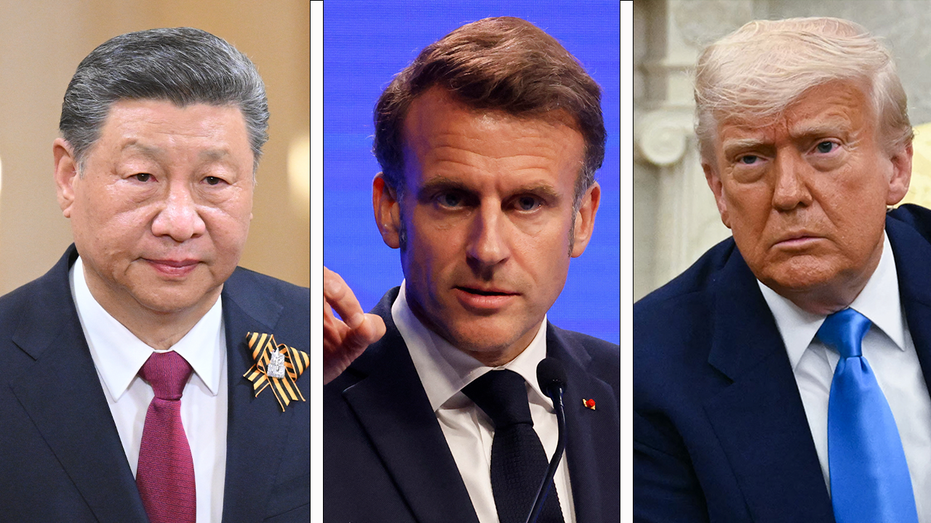Macron Criticizes Trump and China Over Trade, Ukraine, Gaza Policies: Warns They Threaten Global Stability
Macron warns at Shangri-La forum that pressing nations to choose sides in U.S.-China tensions risks dismantling global institutions and endangering peace.

French President Emmanuel Macron delivered a stark message at the prestigious Shangri-La security forum in Singapore on Friday, addressing what he characterized as the mounting dangers of division and escalating tensions between global powers. Speaking to an international audience, Macron emphasized France’s enduring alliances and its commitment to multilateral cooperation, while cautioning against the threat posed by deepening rifts—especially between the United States and China.
“I will be clear, France is a friend and an ally of the United States,” Macron stated, underscoring the value of the transatlantic relationship. He clarified that while France competes and sometimes disagrees with China, it also maintains productive cooperation with Beijing. Despite acknowledging these partnerships, Macron didn’t shy away from expressing concern, warning, "The main risk today is the division of two super-powers."
Macron’s remarks addressed the increased pressure on nations to align themselves with either Washington or Beijing—an issue exacerbated by recent threats of sweeping tariffs under former President Donald Trump. The French leader argued that forcing countries into binary choices would not only threaten the fragile balance of power but could also “kill the global order”. He painted a somber picture of the potential collapse of international institutions painstakingly built after World War II—institutions dedicated to global peace, health, climate action, and human rights.
“We are neither China nor the U.S.; we don’t want to depend on any of them,” Macron asserted. “We want to cooperate. But we don’t want to be instructed on a daily basis what is allowed, what is not allowed, and how our life will change because of the decision of a single person.” His pointed words appeared to caution both Washington and Beijing against unilateralism and the erosion of smaller nations’ agency.
The French president also turned his attention to current international conflicts, particularly criticizing China for supporting Russia amid its invasion of Ukraine and for failing to prevent North Korea—the Democratic People’s Republic of Korea (DPRK)—from dispatching troops to assist Moscow. Macron argued that if China wishes to avoid NATO involvement in Asia, it should take responsibility for discouraging North Korean military engagement on European soil.
Expanding upon interconnected crises, Macron highlighted the global stakes of the ongoing wars in Ukraine and Gaza, warning that the universal principles underpinning the world order—such as respect for sovereignty and territorial integrity—are in peril of being forgotten. He warned, “If we consider that Russia could be allowed to take a part of the territory of Ukraine without any restriction, without any constraint, without any reaction of the global order...what could happen in Taiwan? What would you do the day something happened in [the] Philippines?”
He stressed that the conflict in Ukraine is not just a European matter, but a test of the international community’s resolve to uphold shared values: “What is at stake in Ukraine is our common credibility to be sure that we are still able to preserve territorial integrity and sovereignty of people, no double standard.” Macron also connected this principle to the situation in Gaza, arguing that granting Israel unchecked latitude in its military campaign—resulting in a dire humanitarian situation—could undermine the credibility and moral leadership of democratic nations worldwide.
With tensions simmering on multiple continents, Macron’s address served as a call to action for renewed diplomatic engagement and adherence to the principles that have long formed the foundation of international cooperation. He urged the world’s major powers to recognize their interconnected responsibilities in maintaining global stability, warning that the alternative—polarization and unilateralism—threatens the very fabric of the postwar world order.




